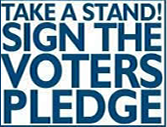
Leading US senator urges direct U.S.-Iran talksReuters April 18, 2006 By Jim Wolf The United States should hold direct talks with Iran on its nuclear program and go slow on pressing for sanctions, contrary to Bush administration strategy, the Senate Foreign Relations Committee chairman said on Sunday. Breaking with President George W. Bush's insistence on a multilateral approach through the U.N. Security Council, Sen. Richard Lugar said direct U.S. talks with Iran would be useful as part of a broad dialogue on energy. Lugar, on the ABC television program "This Week," said it was too soon to press hard for sanctions aimed at halting Iran's suspected nuclear weapons program even as the Bush administration prepares to do so at a meeting in Moscow Tuesday. "I believe, for the moment, that we ought to cool this one, too," said Lugar, a Republican from Indiana. "We need to make more headway diplomatically." Spokesmen for the White House and the State Department had no immediate comment. Bush, wary of any Iranian effort to undo multilateral diplomacy, has ruled out direct U.S.-Iran talks on the nuclear issue, although he has opened a door to bilateral discussions on sectarian violence in neighboring Iraq. Iran announced last week it had enriched uranium for use in fueling power stations for the first time in defiance of a March 29 U.N. Security Council demand that it halt its enrichment program. The announcement fanned Western fears of a covert atomic bomb program that has spurred reports of U.S. planning for the possible use of tactical nuclear weapons to knock out underground nuclear sites. Iran says its nuclear program aims only to produce electricity. Bush dismissed reports of planning for a possible military strike as "wild speculation" and said he remained focused on diplomacy to defuse the issue. 'USEFUL' TALKS Asked whether there should be direct talks with Iran now, Lugar said: "I think that would be useful ... the Iranians are a part of the energy picture. "Clearly their ties with India and with China, quite apart from others, are really critical to (international energy issues)," he said. "We need to talk about that. Maybe we need to focus our attention less right now on the centrifuges than on how power is going to come out ... to all of these countries in some more satisfying way," he said. The United States will push its allies this week to consider punitive measures against Iran that include a freeze on assets, targeted sanctions and visa restrictions, State Department spokesman Sean McCormack said Friday. Russia and China each hold veto power that could block U.N. Security Council-backed sanctions and each have strong economic ties with Iran. Each opposes sanctions or the use of force against Tehran. Asked about sanctions, Lugar said: "I would hold off for the time being until we're certain that they're going to be effective." "And they will not be effective without European friends who are in our negotiations quite apart from the Chinese, the Indians and the others," he said. Undersecretary of State Nicholas Burns, the State Department's third-ranking official, said Friday that Iran's continued nuclear work was leaving it "no exit points" and isolating itself. Burns, who will attend the Tuesday meeting in Moscow with senior officials from France, Germany, Britain, Russia and China, said he hoped sanctions could be imposed in a way that would "get the attention of the Iranian government" but not be too damaging to the Iranian people. |

